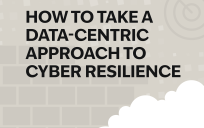If you’re an elected leader, appointee or senior executive, this article will help you think strategically about data leadership.
First, ask yourself this question: How many hours and meetings do you spend on the following?
- What to invest in capital and infrastructure for your jurisdiction.
- Your budget and financial choices.
- How your jurisdiction manages and leverages data.
If the answer to the first two is “A lot” and the answer to the third is “Not much,” you have a problem.
Yes, I get it – your voters and constituents probably aren’t asking you about data. It’s not a vote getter. But all the things they do ask you about – like services, programs and city investments rely on your good use of data.
Good use of data leads to better programs and services which leads to happy constituents.
So how should you think about data?
1. Think of data as an asset to be managed
Much like your financial and physical assets – data is an asset. And just like any other asset, you need to actively invest in and manage it to ensure it’s of quality and meeting your needs. That means you need a strategy to manage, improve and use your jurisdiction’s data.
2. Hire (or designate) the right people
To manage your data like an asset, you need to hire or designate people to do the job. In some sense, data is everyone’s job. But you still need an individual (or preferably group of people) whose job is to articulate what it means to manage data like an asset in your jurisdiction and then execute on it. They should have sufficient authority and position to meaningfully connect at senior levels of the organization.
When you’re hiring or designating people for this – keep in mind some tips:
- Avoid flashy people who promise magical data fairy dust. Data work is hard and often not glorious or sexy. You need someone who is going to grind it out over multiple years – not someone who is looking for a sexy resume addition.
- Find people who are oriented towards culture change. Most data work is really about culture change and change management. Don’t hire someone who thinks this is a technical problem.
Oh, then get out of their way. Don’t politicize data. It will backfire.
3. Signal that data matters
While you shouldn’t be in the weeds on data work or talking about it constantly – you do need to signal that it matters. A couple of ways to do this include:
- Weave it into your talking points (e.g. this analysis told us that or I would like to make that decision after I see more data).
- Prioritize getting What Works Cities Certified (or some equivalent framework) for assessing your organizational practices around data use. This will essentially give you a to-do list for your jurisdiction. This is a strong internal signal that you care about managing and using data.
- Work with your data team to develop a set of expectations for your managers, department heads, etc around what they should be doing to accelerate data management and use in their areas.
Of course there are many other ways you can encourage and accelerate data as a data leader. But these three steps are foundational. Take them. You and your constituents will benefit.
Joy Bonaguro is part of the GovLoop Featured Contributor program, where we feature articles by government voices from all across the country (and world!). To see more Featured Contributor posts, click here.





Great post Joy! I love the idea of thinking of data as an asset!
Great post!